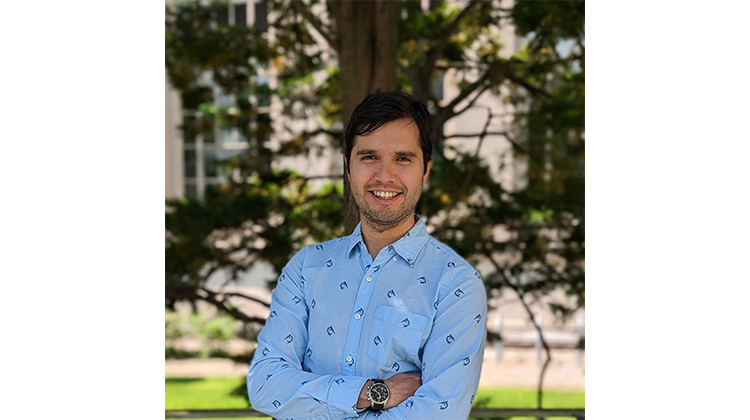Arch/SCC Special Seminar: Carlos Sandoval Olascoaga: Drawing Together: Critical Computing and Community Participation in the Design of the Built Environment

Abstract
In the next four decades, we will build more urban fabric than we have in the entire human history, and most of this development is already happening informally without the help of architects, designers, or planners. When architects are involved in the process, they often engage with the communities, and clients they serve, but existing design tools and methods are often built around a single, central design author. These tools are profoundly disconnected from the complex social and environmental outcomes that architectural interventions have, and they are not scalable to the amount of building that will be required in the coming decades.
In this talk, Carlos will discuss how computing can allow us to produce new kinds of collaborative tools and approaches to help us collectively shape the built environment. These tools will give new voices not just to designers, but to those whose everyday lives are shaped by those designs. He will explore how design, computing, and a critical understanding of the cultural and computational history of our design tools and technologies - who they serve, represent, and impact- are fundamental to returning us to a community-driven approach to architecture that can help us address some of our most pressing contemporary challenges.
Bio
Carlos Sandoval Olascoaga is an architect, with a background in computation and urban design. He is currently a Postdoctoral Associate and Lecturer at MIT with a joint appointment between the Department of Architecture and the Schwarzman College of Computing (SCC). His work combines design, computing, urban data, and public service to provide formal computational design methods that allow the broadest set of community members to shape their own environments equitably and holistically with the support of computational intelligence. He is invested in directly connecting his interdisciplinary research and teaching with on-the-ground partnerships with community organizations. His current book project uncovers the computational and political history of computational tools for design and geocomputing and provides a critical framework to develop design tools to support community participation in design. Carlos received his PhD and SMArchS in Computation from MIT, a Master of Architecture from UC Berkeley, and a Bachelor of Architecture from UNAM in Mexico.


